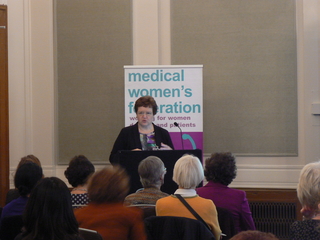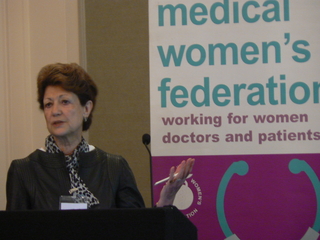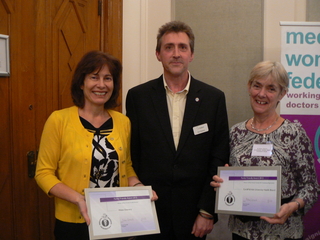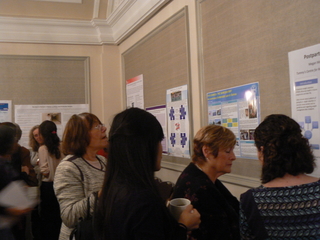Patient Safety is transforming the culture of our National Health Service. The Medical Womens Federation Conference looked at a diverse range of factors affecting patient safety; from the reconfiguration of services, to the restructure of training and education of our workforce, to the wider public perception of the NHS and the pivotal role whistle blowing plays.
Dr Vicky Osgood, Assistant Director of Post-Graduate Education at the General Medical Council caught our attention early on when discussing patient complaints and satisfaction. Interestingly, women receive significantly fewer complaints and are less likely to be brought in front of the GMC for review. Women play a vital role in managing patient experience and expectations, yet women are underrepresented in managerial and leadership roles within their organisations.
The Conference explored key characteristics seen to be innate to women, such as compassion, communication and empathy which could account for the differences between men and women. Women now make up the majority of medical students but are still underrepresented in certain specialties, senior roles, boards and academic positions. As Dr Lucy Morse, obstetrics and Gynaecology Trainee explores throu gh her work, we need to change theperception of feminine characteristics, not being a sign of weakness or vulnerability but rather strength, key in delivering quality care and changing culture.
Dame Fiona Caldicott Chair of the Independent Information Governance Oversight Panel, unfolded the complexity of information governance, the delicate balance between confidentiality and clinical excellence. She stressed the need for integrated care records to facilitate a single point of access for clinicians to deliver efficient and effective care to patients across a multitude of healthcare organisations.
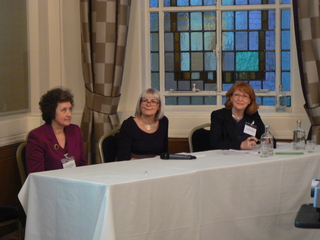
At the meeting Paul Deemer, Equality and Diversity Consultant from NHS Employers presented awards the Family Friendly Awards - a collaboartive award offered by MWF and NHS Employers to the most Family Friendly Deanery Wales Deanery and to the Cardiff and Vales University Health board.
Tami Hoffman Sky News Editor offered a wonderful closing to the event. Her words hit home as she addressed the under representation of women Doctors in the media. It was fascinating to hear that women turned down the opportunity to talk ob behalf of their organisation, specialty or on a particular issue due to a lack of confidence and self belief. Interestingly women commonly would refer to male counterparts as better options, demonstrating that women equally qualified and skilled did not perceive themselves as being equally capable. There is still a need to support and promote gender equality in order to empower women to believe in their abilities.
In the current climate we should aim to put patient safety at the heart of every consultation, whether at home, in the community or in a hospital. We need to ensure that patient safety is integral to the culture and work ethic of an organisation. Staff should be motivated and driven and by delivering good quality care rather than targets and monetary objectives. The cost of any compromise is far too high for our profession and our patients alike.
Dr Bhavagaya Bakshi
GP ST1 trainee in London at Northwick Park Hospital

